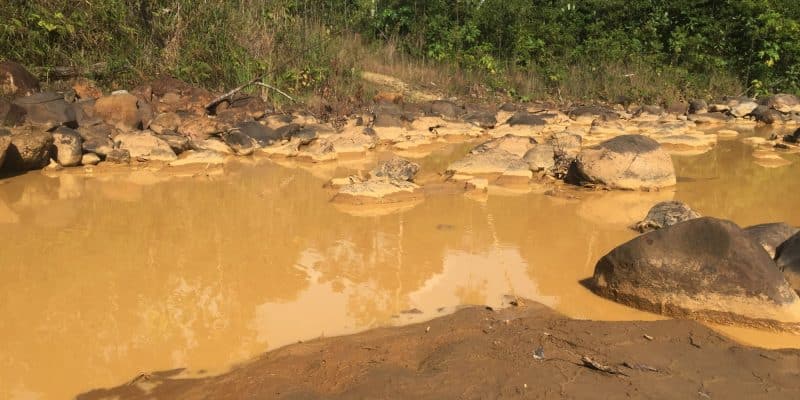In Niger, the temporary closure of several gold mining sites in the north of the country was decreed on 3 May 2024 following the sudden death of more than fifty ruminants, victims of suspected poisoning linked to gold mining. According to the farmers, it was water discharged by the Chinese gold mining company Sahara SARL that contaminated the animals.
In the Agadez region of northern Niger, around 1,000 km from the capital Niamey, more than fifty animals (goats, sheep and camels) died suddenly on 30 April. According to local livestock farmers, these unprecedented animal deaths are due to chemical residues from extraction wells contaminating water sources. In villages such as Tamannit and Fasso, dozens of animals have been lost, with devastating consequences for the livelihoods of local people.
In response to this critical situation, the Nigerien government has ordered the temporary closure of several mining sites, including those operated by the Chinese company Sahara SARL. This decision is aimed at investigating the causes of the poisoning and preventing further incidents. Teams of investigators from the gendarmerie and the police have been dispatched to the site to assess the extent of the damage and take appropriate action.
These events highlight the environmental challenges facing African countries as a result of mining. In addition to the impact on local flora and fauna, these incidents raise questions about the social and environmental responsibility of mining companies operating in the region. According to the private newspaper Aïr Info, based in Agadez, an official report confirms that “the disaster was caused by chemicals used in the mines, which pose a serious threat to wildlife and the water table”. In the Arlit region, also in the north of the West African country, nature conservation non-governmental organisations (NGOs) often accuse the French company Orano (formerly Areva), which has been mining uranium there for over 40 years, of polluting the already hostile animal environment and causing radioactivity.
Read also-CAMEROON: Chinese mining company on trial for murder and pollution
In Niger, the extractive sector accounted for 7.6% of gross domestic product (GDP) and 6.52% of government revenue in 2020. It is therefore crucial that stricter control and regulatory measures are put in place to prevent such tragedies in the future and protect vulnerable communities dependent on agriculture and livestock farming.
Boris Ngounou






